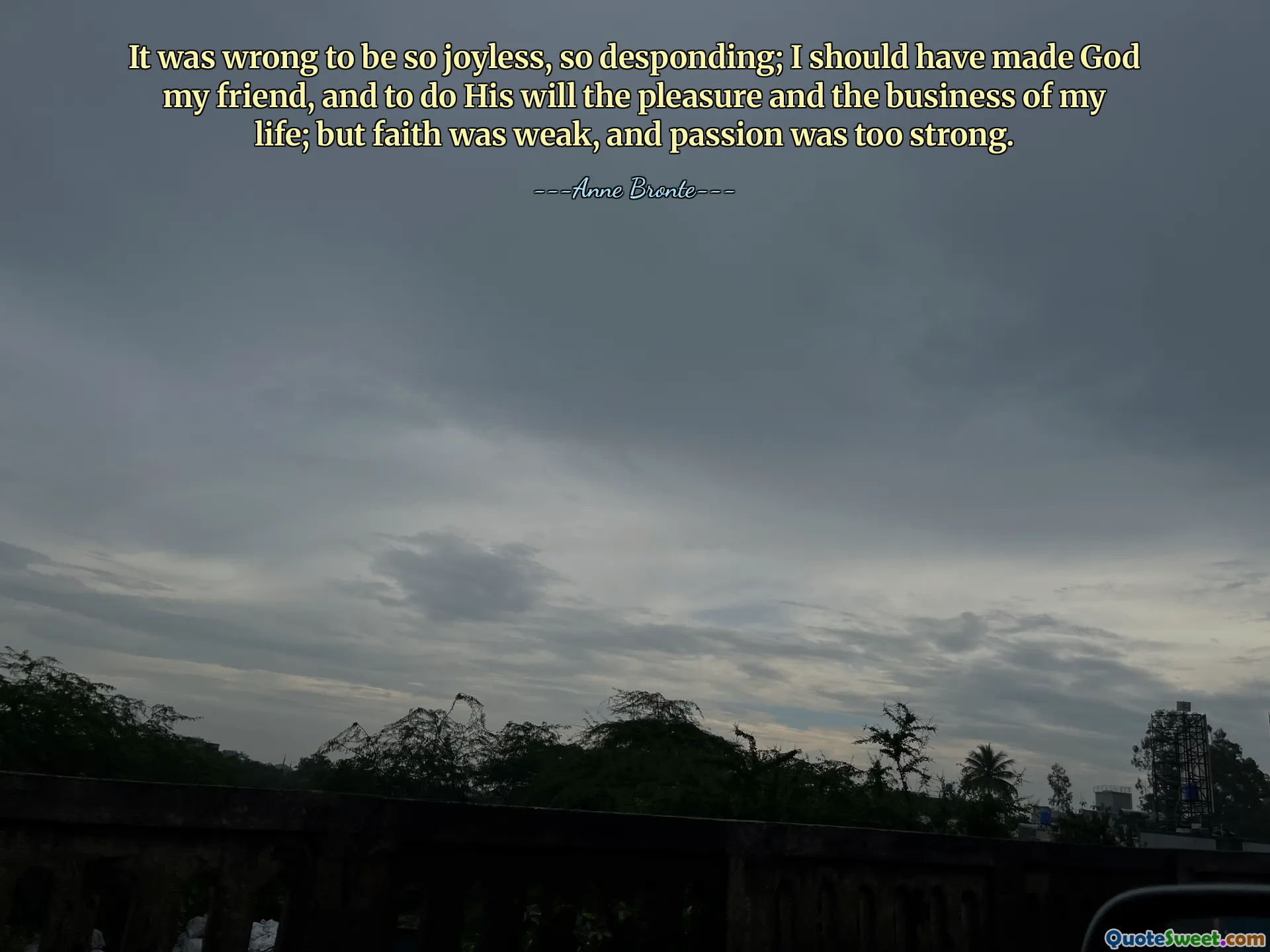
It was wrong to be so joyless, so desponding; I should have made God my friend, and to do His will the pleasure and the business of my life; but faith was weak, and passion was too strong.
This quote reflects a profound internal struggle with spiritual and emotional balance. The speaker acknowledges the futility of living in despair and recognizes that embracing faith and divine friendship could have transformed their outlook and purpose in life. The lamentation over weak faith suggests that a deeper trust in divine guidance might have provided solace and strength during times of adversity. Additionally, the acknowledgment of strong passions hints at the human tendency to be caught between fleeting desires and higher spiritual pursuits. The recognition that it was wrong to remain joyless implies an understanding that true fulfillment comes from aligning oneself with divine will and cultivating a joyful, trusting relationship with God. This introspection underscores the importance of faith as a cornerstone of a meaningful and contented life, and the awareness that passions and desires, if not controlled or directed spiritually, can lead to dissatisfaction and despair. The quote encapsulates the timeless struggle between worldly passions and spiritual aspirations, reminding us that finding a true connection with the divine can be a source of peace and purpose. It also highlights the vulnerability inherent in faith, acknowledging that it can be weak, but nevertheless essential for overcoming internal conflicts and achieving genuine happiness. Overall, it is a reflection on the importance of spiritual devotion and the need for personal growth in faith to overcome the darkness that can cloud one's happiness and sense of fulfillment.







